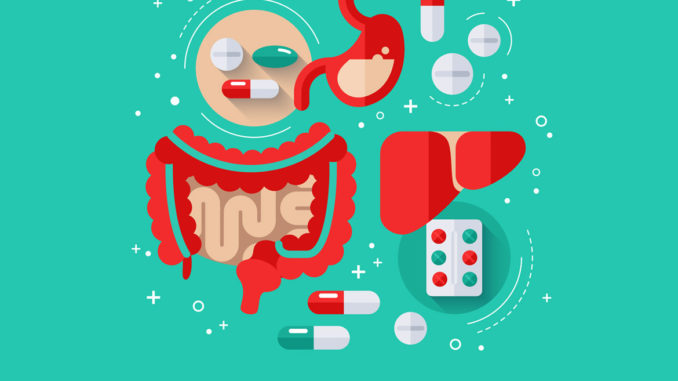
Although there is no test for IBS, a doctor may send the patient for an examination to make sure the symptoms are not caused by other problems. If you have these signs or symptoms, or if the initial treatment for IBS is not working, you may need further testing. During the diagnosis, the doctor will seek to rule out conditions that cause IBS symptoms.
Doctors use a tool called the Roman Criteria, which lists specific symptoms and factors that can help determine whether someone has IBS-D. Now, however, experts have developed a blood test that can accurately determine whether a person has diarrhea-predominant irritable bowel syndrome (IBS-D) or irritable bowel disease (IBD).
People with IBS often complain of abdominal pain, diarrhea, constipation and bloating, but they don’t actually have any identifiable stomach, colon, or small intestine problems, says Kimberly Tosh, MD, a gastroenterologist at the Henry Ford Health System. People with IBS often report that these symptoms are present to varying degrees for many months or years. In addition, there is severe and painful bloating, gas (wind), abdominal cramps, and intestinal cramps that affect so many.
Most people have only mild symptoms that they can manage without treatment. But some people have more severe symptoms that greatly affect their daily lives, so they seek treatment to reduce symptoms. In some cases, medication or psychological treatment may also be helpful. Treatment for IBS relief usually includes some dietary and lifestyle changes, as well as learning to manage stress.
When it comes to quickly relieving IBS symptoms, targeted over-the-counter supplements can help. Some people find that adding fiber, such as eating more fruits and vegetables and drinking more water, can also help stop IBS symptoms. This could mean taking fiber supplements or eating more foods that are high in soluble fibre.
First, your doctor will likely suggest changing your diet to see if your symptoms improve. For people with IBS-D who continue to have symptoms despite trying some of the treatments mentioned above, there are other treatment options, including antibiotics and medications that block pain specifically in the gut. These gut drugs work on several symptoms of IBS, including pain, diarrhea, and constipation.
In IBS-C, acupuncture can help calm the autonomic nervous system, which can help regulate the gastrointestinal tract. Acupuncture may also help if you have IBS-D. A study published in Frontiers in Neuroscience in December 2020 found that acupuncture can improve the functional connectivity of the brain, which can relieve IBS-D symptoms and improve patients’ quality of life.
Exercise can help relieve symptoms for most (but not all) people with IBS. Treatment for IBS is aimed at relieving symptoms so you can live as normal a life as possible.
If you have IBS, you may worry about anything that might cause your symptoms. Learning more about IBS and what causes symptoms is the first step to taking action. All treatment for IBS begins with education about the nature of the disease, including why and how symptoms appear.
If your IBS symptoms continue to cause problems after 12 months of treatment, you may be referred to a treatment called psychological intervention. Hypnotherapy has been shown to help reduce pain and discomfort in some people. Another psychological intervention for IBS is cognitive behavioral therapy (CBT).
This can help change how the unconscious mind reacts to physical symptoms. In this type of therapy, hypnosis is used to change the attitude of your unconscious towards any symptoms you may have. You may not have heard of hypnotherapy as a medical treatment, but it has been shown to help with IBS symptoms and can also treat other conditions such as chronic pain or smoking addiction. Gut hypnotherapy has been shown to significantly reduce IBS symptoms in over 50% of people. A. You can try bowel-focused hypnotherapy by visiting a hypnotherapist or using a mobile app such as Nerva (based on this recent study).
Research findings suggest that yoga practice can improve physical health and a more positive outlook on life, which can help reduce IBS symptoms. A recent meta-analysis, published in BMC Complementary Medicine and Therapies in January 2019, looked at 12 different studies on three different continents and found that taking peppermint oil capsules regularly with meals helped reduce symptoms of peppermint IBS, including abdominal pain, Diarrhea, bloating, and constipation. Studies have shown that in people with irritable bowel syndrome who have diarrhea, a specially coated tablet that releases peppermint oil slowly into the small intestine (enteric-coated peppermint oil) can relieve swelling, Urgency, abdominal pain, and pain during bowel movements.

Probiotics are dietary supplements that food manufacturers claim can help improve digestion. Some people with IBS have abnormal gut flora, so probiotics containing these bacteria (such as those found in yogurt and drinks) may help. Recent research suggests that certain probiotics may help relieve IBS symptoms such as abdominal pain, bloating, and diarrhea. The use of prebiotics, food supplements that promote the growth of certain types of bacteria in the gut, is not recommended for the treatment of IBS.
If you have IBS that appears to be related to stress, there are some adjustments you can make. Stress often makes IBS-D worse, so it’s important to find healthy ways to deal with stress in your life as well. The key to treating IBS is identifying the foods and drinks that are causing the symptoms.
However, just as IBS patients need to identify their individual triggers, it may be necessary to do a little experimentation to see which forms of exercise help relieve symptoms and which tend to make them worse. Some treatments may be aimed at relieving the uncomfortable symptoms of IBS-D, such as abdominal pain, discomfort, or swelling. It can sometimes relieve abdominal discomfort, bloating, and gas in IBS-D.
The ACG suggests that foods containing probiotics, or digestive-friendly bacteria, may help relieve some of the symptoms of IBS, such as bloating and gas. Antibiotics also affect the intestinal flora, which can sometimes aggravate IBS symptoms. Unlike other digestive disorders such as inflammatory bowel disease, IBS does not carry the risk of permanent damage to the gut. This condition usually causes symptoms such as abdominal pain, cramps, gas, bloating, diarrhea, or constipation.
They often resemble symptoms of other diseases and conditions and may also affect different parts of the body. They may experience pain due to sensations that others do not perceive as pain (called allodynia) or experience more pain than others (hyperalgesia).
